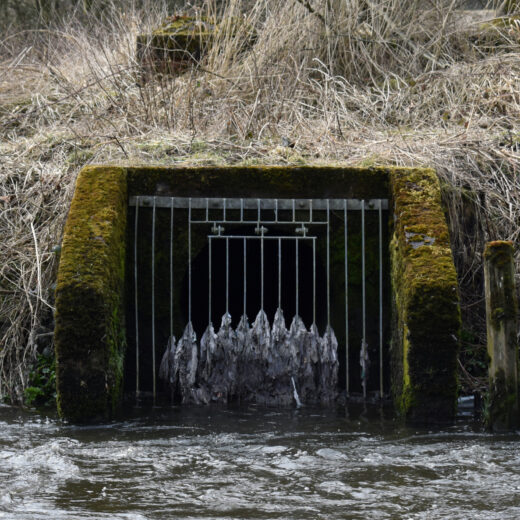
Water pollution
Water is arguably our most precious natural resource — yet pollution of our freshwater habitats runs rampant. In 2020, no river in England and Wales was classed as being in good overall health.
Water quality is under attack from all angles. Sewage and urban pollution, agricultural pollution, and industrial pollution all contribute to the problem.
With so much at risk, water quality is at the forefront of what we do. Many water quality problems arise from multiple sources of diffuse pollution, spread across the landscape. This includes; contaminated runoff in both rural and urban areas; incorrect plumbing in homes and businesses, causing sewage to run into rivers; poorly maintained septic tanks; and increased rainfall, resulting in overwhelmed sewage systems.
Alongside our local Trusts working on the ground, we’re carrying out work to improve water quality across the UK and Ireland. We are:
- Improving agricultural practices and farm infrastructure to address chemicals, surface run-off and the erosion of soil
- Restoring natural features such as wetlands and woodlands which act as a natural filter for pollutants
- Creating green infrastructure in towns and cities, to slow the flow of surface run-off and reduce the risk of sewer systems overflowing
- Monitoring water quality to identify misconnected pipes and pollution hotspots
- Raising awareness about pipes and drains and their impact on water quality
We support our member Trusts through training, mentoring and the development of modelling, monitoring and assessment tools, which can help identify sources of pollution and target solutions effectively.
What can you do to help improve water quality in your area?
Only put the three Ps down the toilet: paper, poo and pee
Putting anything else down the toilet runs the risk of blocking sewers, which increases the likelihood of sewage being released into rivers. This includes wet wipes which brand themselves as flushable!
Reduce the amount of oils fats and grease that go down the kitchen sink. This can prevent sewer blockages
Oil and fat can contribute to the formation of huge ‘fatbergs’ which block up the sewer system. These blockages can often result in the emergency discharge of untreated sewage into rivers.
Address any misconnections in your home
This guide provides an easy way to judge whether or not your home is at risk of misconnections. If wastewater or sewage is connected to a surface water drain, it’s very possible that you are unintentionally polluting your local river. A plumber will be able to help you fix this.
Reduce the amount of rainfall that gets into the sewerage network
Non-permeable surfaces like concrete and fake grass do not absorb water in the same way as lawns and natural vegetated land . When it rains, water accumulates on hard surfaces and flows quickly into storm drains. This can often result in sewers becoming overwhelmed and discharging sewage into rivers.
